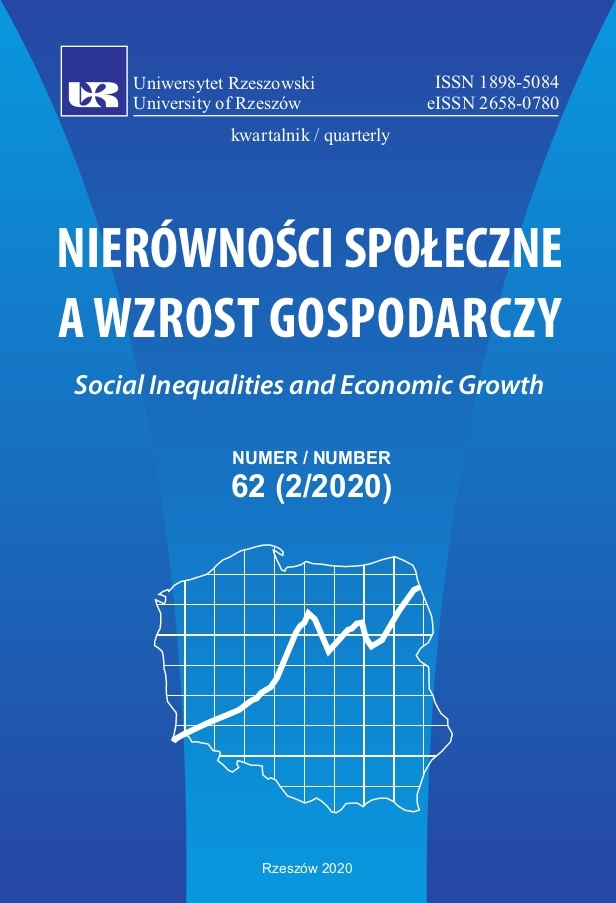Modeling the anti-crisis management of territories under the conditions of decentralisation. A case study of Ukraine
DOI:
https://doi.org/10.15584/nsawg.2020.2.12Keywords:
modelling of anti-crisis management, crisis situation of territories, decentralisation in Ukraine, territorial entitiesAbstract
Modelowanie kryzysowego zarządzania terytoriami w warunkach decentralizacji: na przykładzie Ukrainy capability related to the effectiveness of the scheduled actions. The most problematic area in crisis management is the development of an effective model that takes into account the participation of citizens in the process of business decision-making. One of the possible solutions to this problem is to model situations to overcome the crisis, and to study the territories (regions of the country) in terms of their socio-ecological and economic status. The study applied the following methods: study of phenomena (objects, subjects); division of the territory of Ukraine into parts according to aggregate indicators; research into the various aspects of territorial objects; and the identification and analysis of interrelations between the factors and results. On the basis of the developed approach and results of the study, a model is suggested for identifying the crisis status of territories in a decentralised environment; the latter takes the following into account: availability of resource and labour potential; social, ecological and economic components of the development of territories; risk factor for the advent of crisis; and the overall coefficient of decentralisation. The introduction of an algorithm was suggested for grouping objects, which takes into account the level of improvement in anti-crisis management under the conditions of a decentralised environment. The use of the cluster ranking methodology, which, unlike the existing ones, includes calculations based on taxonomic metrics, was rationalized. The research allowed the introduction of a differentiation approach to creating development plans for the various types of territorial systems included in the clusters. The division was made in accordance with the crisis situation in the territories to allow development on the basis of sustainability in the context of introducing decentralisation.Downloads
Download data is not yet available.
Downloads
Published
2020-11-04
How to Cite
Iwaszczuk, N., & Antoniuk, N. (2020). Modeling the anti-crisis management of territories under the conditions of decentralisation. A case study of Ukraine. Social Inequalities and Economic Growth, 2(62), 183–201. https://doi.org/10.15584/nsawg.2020.2.12
Issue
Section
Articles
License
Copyright (c) 2020 University of Rzeszow

This work is licensed under a Creative Commons Attribution-ShareAlike 4.0 International License.


